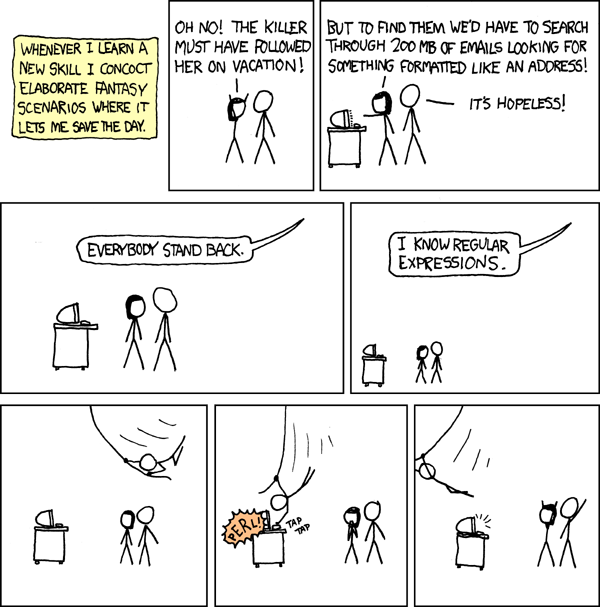this post was submitted on 01 Feb 2024
316 points (98.5% liked)
Comics
521 readers
1 users here now
A community for sharing comics related to programming
Icon base by Delapouite under CC BY 3.0 with modifications to add a gradient
founded 1 year ago
MODERATORS
you are viewing a single comment's thread
view the rest of the comments
view the rest of the comments

Ah, yeah. It was never meant to be a be all and all. Just something to clean up the complete trash before I started proofreading. Besides, these were emails the customer provided and could easily be changed afterwords. Their fault if we get bad emails in the list ¯\_(ツ)_/¯
This is the way
You're completely correct. In practice, it's usually good enough to just check for ".+@.+" or ".+@.+\..+". Why? It's broad enough to allow almost everything and it rejects the most obvious typos. And in the end, the final verification would be to send an email there which contains a link, that one has to click to finalize the signup/change. Even if you had a regex that could filter every possible adress that's possible according to the standard, you still wouldn't know whether it really exists.